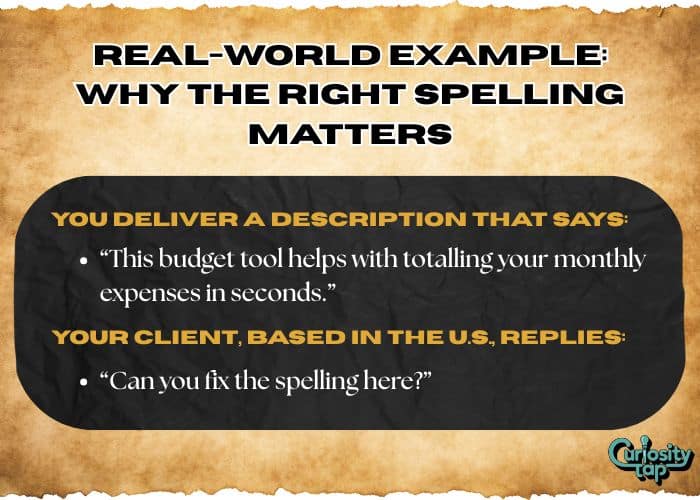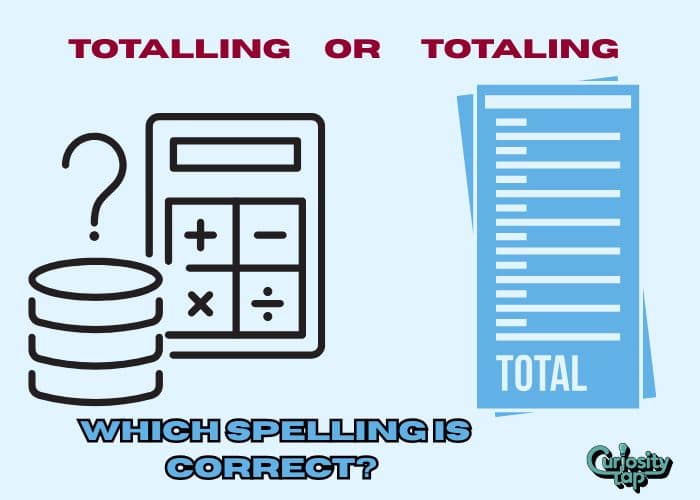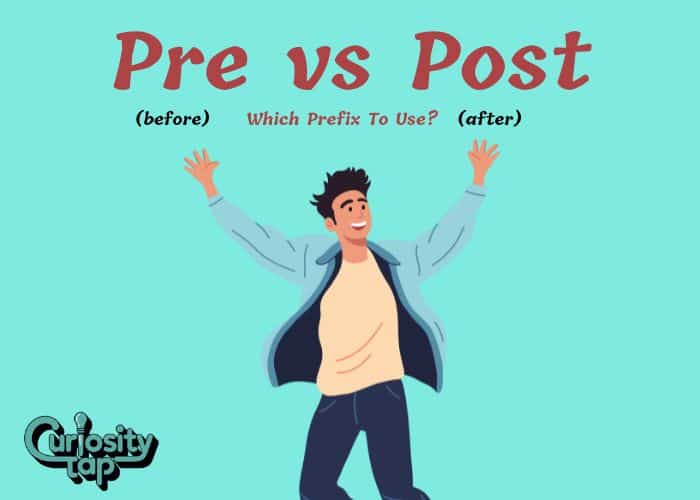Language learners, writers, and even professionals often trip over regional spelling differences.
One such classic example is the word “totalling” vs “totaling.” Is one correct and the other wrong? Or does it depend on where you are?
Let’s break it down with expert guidance, real-life examples, and a practical checklist so you never second-guess yourself again.
Why Spelling Differences Like “Totalling” and “Totaling” Matter
📌 The Globalization of English
English is no longer just the language of the UK and the US. It’s now the global standard for business, education, and the web.
That means understanding regional spelling helps you write for an international audience without sounding “off.”
🧠 Perception & Professionalism
If you’re writing a resume, business proposal, or academic paper, using the wrong regional spelling can unintentionally affect your credibility.
Knowing the difference between “totalling” and “totaling” could make or break how polished your writing appears.
Also Read: Cancelation or Cancellation: Which Spelling is Correct?
British English vs American English: The Core Difference
🇬🇧 British English – “Totalling”
In British English, doubling the final consonant before adding a suffix is common when the stress is on the final syllable. Thus:
- Total → Totalling / Totalled
Examples:
- She was totalling the receipts at the end of the day.
- The damage was totalled at over £5,000.
🇺🇸 American English – “Totaling”
American English typically avoids doubling consonants unless absolutely necessary. The same word becomes:
- Total → Totaling / Totaled
Examples:
- He was totaling the sales for the quarterly report.
- The car was totaled in the accident.
Grammatical Rule Behind the Spelling Variation
💡 Rule of Doubling the Final Consonant
In British English:
Double the final consonant if the stress is on the last syllable and the word ends in a single vowel + consonant.
American English simplifies this:
Do not double the final consonant unless the stress is on the last syllable and the word ends with a CVC (consonant–vowel–consonant) pattern.
So:
- “Travel” becomes travelling (UK) vs traveling (US)
- “Total” becomes totalling (UK) vs totaling (US)

Real-World Example: Why the Right Spelling Matters
Let’s say you’re a freelance writer creating product descriptions for an international e-commerce company.
You deliver a description that says:
“This budget tool helps with totalling your monthly expenses in seconds.”
Your client, based in the U.S., replies:
“Can you fix the spelling here?”
Had you written “totaling”, you would have matched their expectation and avoided the friction.
In reverse, a UK client might feel you’re too “Americanized” if you use “totaling” in formal documentation.
Totalling vs Totaling: Comparison Table
| Feature | Totalling (UK) | Totaling (US) |
|---|---|---|
| Spelling Region | British, Canadian, Australian English | American English |
| Common in | Academic, legal, and print in UK/Commonwealth | Tech, business, media in U.S. |
| Example Sentence | She’s totalling the receipts. | He’s totaling the sales figures. |
| Use in International Docs | Less preferred in U.S. settings | Preferred for U.S. readers |
Also Read: Tying or Tieing? Correct Spelling & Grammar Explained
✅ Quick Checklist: Which One Should You Use?
- Writing for an American audience? ➜ Use totaling
- Writing for a British/Commonwealth audience? ➜ Use totalling
- Unsure or writing for a global audience? ➜ Consider consistency with other words like “colour/color” and state your style choice
Frequently Asked Questions (FAQs)
❓ Is “totalling” incorrect in American English?
Not incorrect, but it’s nonstandard. “Totaling” is preferred in the U.S.
❓ Can I use both versions in the same document?
It’s best to choose one spelling convention and apply it consistently.
❓ What about in academic writing?
Follow your institution’s or publisher’s style guide APA, MLA, and Chicago typically follow American English unless specified otherwise.
❓ Is there a difference in pronunciation?
No both are pronounced the same regardless of spelling.
❓ Does Grammarly detect the difference?
Yes, Grammarly adjusts spelling suggestions based on your set English dialect (US vs UK).
❓ Which is used more globally?
“Totaling” has a higher global search volume, likely due to the prevalence of U.S.-based platforms and companies.
Pros and Cons of Each Spelling
| Version | Pros | Cons |
|---|---|---|
| Totalling | Recognized in UK, formal tone | May look unfamiliar to U.S. readers |
| Totaling | Universally understood in digital and U.S. spaces | Could appear informal or “Americanized” in UK docs |
Conclusion: Choose Based on Your Audience
Whether you use totalling or totaling, the most important factor is consistency and understanding your audience’s expectations.
For academic papers, client communications, or web content, regional spelling can influence clarity and perceived professionalism.
📝 Pro tip: Set your document language (UK or US English) in Word, Google Docs, or Grammarly to avoid errors automatically.
Sources
Sources:
- Oxford University Press. (2023). British vs. American Spelling. https://www.oxfordlearnersdictionaries.com
- Grammarly Blog. (2024). UK vs. US English: What’s the Difference? https://www.grammarly.com/blog
- Cambridge Dictionary. (2023). Spelling Differences. https://dictionary.cambridge.org
Read more knowledgeable blogs on Curiosity Tap
Is this article helpful?

Jackson Pearson is a passionate educator and language enthusiast behind the blog Jackson Pearson. With years of experience in teaching and writing, he specializes in simplifying complex grammar rules, breaking down tricky vocabulary, and crafting learning guides that are both engaging and practical. His mission is to help readers boost their English skills whether they’re beginners or brushing up for fluency. Through every article, Jackson brings clarity, structure, and a spark of curiosity to the world of English learning.



